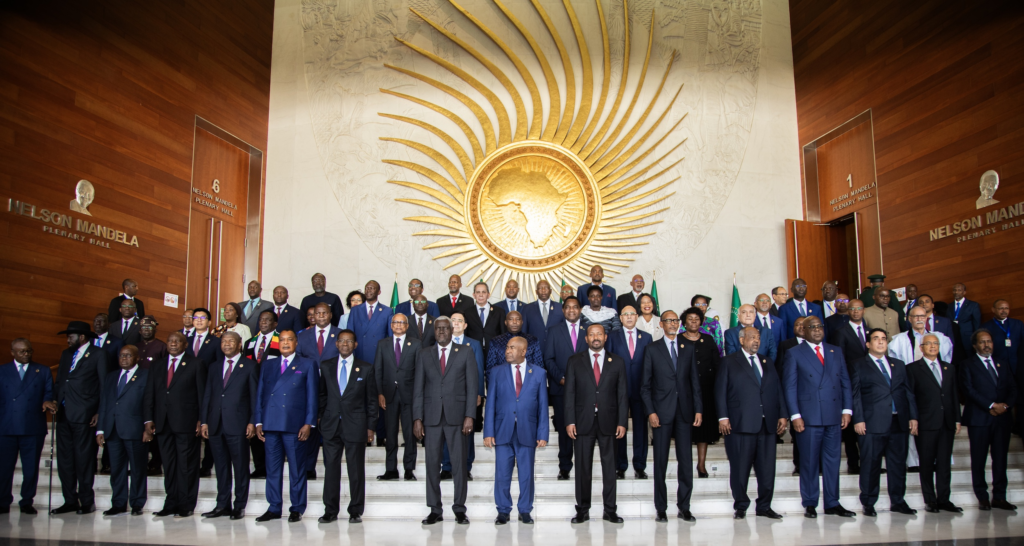
Africa seeks growing voice on international stage amid calls for structural reform
The 37th Ordinary Session of the Assembly of the Heads of State and Government of the African Union (AU) has called for augmenting Africa’s voice on the global stage, supported by structural reforms to address inequalities in the current international system.
The two-day meeting, which opened Saturday and brings together African leaders from AU members at the AU headquarters in Addis Ababa, the capital of Ethiopia, called for a major shift in the international system.

The summit, in particular, highlighted the growing trend of hegemonism, injustice, and inequality as a manifestation of the current international system. Participants of the summit noted that such realities often disproportionately affect countries in the developing world, especially in Africa.
Noting that the African continent is bearing the brunt of malfunctions in the current international order, Chairperson of the AU Commission Moussa Faki Mahamat said the reality is further exacerbating the incessant challenges the African continent is currently facing.
According to him, these challenges include political and institutional instability, poverty, climate change, and weak economic governance.
“Not only have social inequalities widened and injustices multiplied, but hegemony and the absurd desire to resolve our differences through brutal and futile violence have prevailed in the eyes of all,” the AU Commission chief said.
For his part, Mohamed Ould Cheikh Ghazouani, Mauritanian president and chairperson of the AU for 2024, emphasized the imperative for reform within the international system on the basis of equality and inclusiveness.
“In its current state, the international system is characterized by significant inequities and uneven standards, often to the detriment of the most vulnerable and least developed countries,” Ghazouani told the AU summit.
He called on African leaders to join hands to create “a more balanced, equitable, and inclusive multilateral international order for the least developed countries, ensuring that our continent has a voice and effective influence.”
Brazilian President Luiz Inacio Lula da Silva, addressing the AU Summit, echoed this sentiment when he emphasized that attempts to restore a global system based on ideological blocs are not applicable in the real world.
The Brazilian president underscored the positive contribution of major emerging international institutions, such as the BRICS, in enhancing the participation of developing countries in shaping the international system.
Lula emphasized the active participation of developing countries as a requisite for the creation of a global bloc that combines growth, environmental protection, and the reduction of inequalities with increased freedoms.
The summit also acknowledged Africa’s growing prominence on the global stage, as evidenced recently by the AU’s permanent membership in the Group of 20 (G20) and the increasing participation of individual African countries in key multilateral institutions.
According to Faki, the AU’s accession to the G20 “urges us to succeed by effectively making our irreplaceable contribution to the solution of global challenges, while intensifying our advocacy in favor of the continental priorities”.
Ethiopian Prime Minister Abiy Ahmed, meanwhile, stressed the critical need to tap into the recent gains in Africa’s increased presence and voice on the international stage toward ensuring the continent’s deserved place in the global arena.
“While we celebrate the AU’s permanent membership in the G20 and the opportunity it gives the continent to be heard on global issues, there are still important questions we need to address. What role do we, Africans, want to play in this evolving global power structure?” the Ethiopian prime minister asked African leaders attending the 37th AU Summit.






